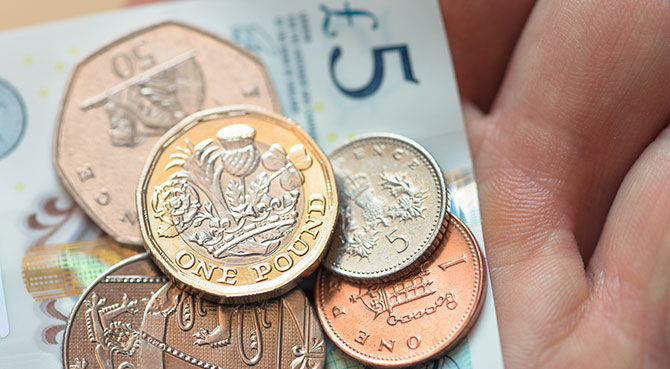GDP upgrade adds to august rate rise speculation
Expectations of an increase in UK interest rates in August were bolstered by a surprise upgrade in the nation’s economic growth for the first quarter of the year.

 29 June 2018
29 June 2018Construction data boosts overall economic outlook
Economic prospects received a further boost when, in separate ONS data, growth in the services sector during April was put at 0.3 per cent in April, its strongest rate of increase for six months.Rob Kent-Smith, ONS head of GDP data, said, “GDP growth was revised up slightly in the first three months of 2018, with later construction data, and significantly improved methods for measuring the sector, nudging up growth.“These improved methods, introduced as part of ONS’s annual update to its figures, will lead to better early estimates of the construction sector with smaller revisions in the future.“Overall, households were borrowers at the beginning of 2018 and for the sixth consecutive quarter, as households continued to face increasing prices, squeezing their budgets.“Investment by both local and central government and the private sector fell, with spending on buildings, machinery and software all seeing notable falls.”Related stories:
- Pound buoyed by services sector bounce
- The Brexit factor cutting manufacturing investment
- Businesses fearful of trade war in wake of US tariffs
Interest rate speculation
The pound rose against the dollar on the news and Ruth Gregory, an economist at Capital Economics, said, “We remain cautiously upbeat about the economy’s near-term prospects and continue to think that the (Bank of England’s Monetary Policy Committee) will press ahead and raise interest rates at its next meeting on August 2.”David Cheetham, chief market analyst at online trading company XTB, added, “Odds of an August rate hike from the BoE have now increased and the upwards revision is in keeping with the bank’s comments that Q1 data is typically subject to revisions.“The pound fell roughly 10 per cent in a little over two months since its April peak largely due to the Bank of England backing down on a May rate hike, and there is some suggestion that the depreciation was a bit of an overreaction.“While Brexit remains a major potential source of uncertainty there has been mildly positive developments on that front in the ensuing period since the pound peaked, with the government just about managing to hold things together.”Productivity in the private sector
A separate report from the Confederation of British Industry (CBI) suggested that growth in the UK’s private sector slowed slightly in the second quarter.The latest CBI Growth Indicator, based on 677 respondents across the distribution, manufacturing and service sectors, showed the balance of firms reporting a rise in output at plus six per cent, down from plus 10 per cent in Q1.Rain Newton-Smith, CBI chief economist, said, “While our latest survey shows pace the growth slowed slightly in June relative to late Spring, we still expect to see healthier GDP growth in Q2 overall compared with Q1.“Progress in lifting productivity growth at home is urgent if UK firms are to grasp opportunities overseas. Using proven technologies and sharing best practice are just two examples of how companies can borrow others’ ideas to promote growth.“Meanwhile flexibility in the UK-EU negotiations will enable both sides to find solutions that protects goods and services trade across Europe, which matters for tens of millions of jobs.”Relocate’s new Global Mobility Toolkit provides free information, practical advice and support for HR, global mobility managers and global teams operating overseas. Access hundreds of global services and suppliers in our Online Directory
Access hundreds of global services and suppliers in our Online Directory
©2026 Re:locate magazine, published by Profile Locations, Spray Hill, Hastings Road, Lamberhurst, Kent TN3 8JB. All rights reserved. This publication (or any part thereof) may not be reproduced in any form without the prior written permission of Profile Locations. Profile Locations accepts no liability for the accuracy of the contents or any opinions expressed herein.






























